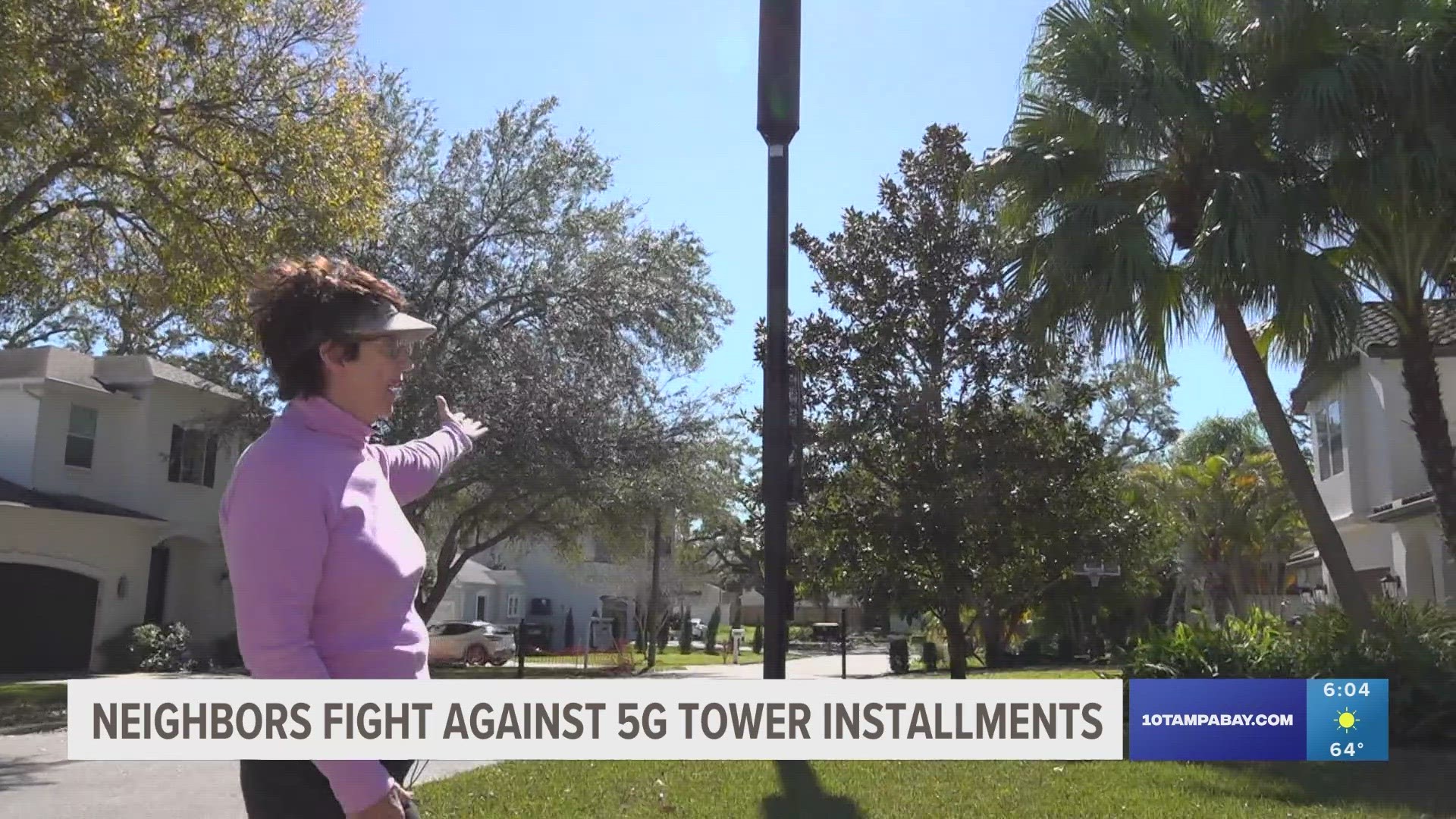TAMPA, Fla. — Right now, families in Tampa are fighting for more regulations about where 5G cell towers can be built in their communities.
In Tampa's Bayshore Beautiful neighborhood, at least two such towers are already up, with more on the way.
Like a normal cell tower, they work to speed up the wireless signal throughout the neighborhood, but neighbors say its proximity to their homes makes them uneasy.
Kitty Solomon had one installed in the easement area of her front yard about a year ago.
"It's very close. I sincerely feel like I'm sleeping with the pole!" Solomon joked.
She said the cell tower came as a surprise.
"I had absolutely no notice at all, just one day they started digging," Solomon said.
A similar 5G pole sits a mile away in the same neighborhood.
"It's hideous and concerning," said Leslie Thomas, who lives nearby. "I would have less internet speed, and I work from home, than have that close to my kids' bedrooms."
Deeper into the neighborhood, Morgan Watts has learned of plans to install a 5G Verizon tower next to her home.
"I'm upset that I don't have any say so. I'm upset that when I asked questions, the only thing I was told back was they're safe. Which, in my research, the jury's out. Even the World Health Organization's official statement on 5G is that this new technology is still under investigation," Watts said.
Lawyer Mattaniah Jahn specializes in zoning and land use.
"The local government doesn't have a lot of discretion on this point," Jahn explained.
Jahn said that's because of Florida's 'Advanced Wireless Infrastructure Deployment Act', which allows telecommunications companies to install small 5G cell towers without local government officials signing off.
"Imagine if FP&L or a power company had to go through a public hearing each time they need to put up a power pole. And it's very similar because these small cells have very limited range," Jahn explained.
Now, Morgan Watts and neighbors are working to change state law regulating the 5G poles. They've started a petition on Change.org calling on state leaders to create more restrictions on where the poles can go and how many can be there.
"What I'm looking to do here is, is not anything new. There are hundreds of municipalities, states, and countries in Europe that have restrictions in place on the 5G towers and their placements," Watts explained.
Their goal is to give regulatory power to local leaders, or a widespread change to push them out of neighborhoods.
Another example Watts is looking towards is a bill that's currently working its way through the New Hampshire legislature. If it passes, the 5G poles would not be permitted within 500 meters of residences and schools.

